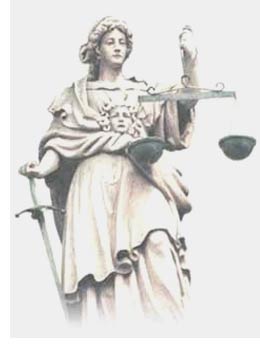History of law
 The history of law is the history of our race, and the embodiment of its experience. It is the most unerring monument of its wisdom and of its frequent want of wisdom. The best thought of a people is to be found in its legislation; its daily life is best mirrored in its usages and customs, which constitute the law of its ordinary transactions.
The history of law is the history of our race, and the embodiment of its experience. It is the most unerring monument of its wisdom and of its frequent want of wisdom. The best thought of a people is to be found in its legislation; its daily life is best mirrored in its usages and customs, which constitute the law of its ordinary transactions.There never has existed, and it is entirely safe to say that there never will exist, on this planet any organization of human society, any tribe or nation however rude, any aggregation of men however savage, that has not been more or less controlled by some recognized form of law. Whether we accept the fashionable, but in this regard wholly unsupported and irrational theory of evolution that would develop civilization from barbarism, barbarism from savagery, and the existence of savage men from a simian ancestry, or whether we adopt the more reasonable theory, sustained by the uniform tenor of all history, that barbarism and savagery are merely lapses from a primordial civilization, we find man at all times and under all circumstances, so far as we are informed by the records which he has left, living in society and regulating his conduct and transacting his affairs in subordination to some rules of law, more or less fixed, and recognized by him to be binding upon him, even though he has oftentimes been in rebellion against some of their provisions.
The recognition of the existence of law outside of himself, and yet binding upon him, is inherent in man's nature, and is a necessity of his being. And this is as much as to say that the very existence of human society is dependent upon law imposed by some superior power. While from our present standpoint the ultimate finite existence is that of the individual, and all true philosophy recognizes that society exists for the individual, and not the individual for society, yet it is also true that the individual is intended to exist in society, and that he must in many things subordinate his own will to that of society, and inasmuch as society can not exist without law, it is a necessary deduction of reason that the existence of law is coeval with that of the human race.
For, if the origin of law were to be sought in compact, a similar compact would suffice to abrogate it; and if it depended on the force of the majority, the wrongfulness of disobedience to its behests would depend entirely upon its discovery and manifestation to the world.
Suppose two shipwrecked men thrown upon a desert island, far removed from all human society, far removed from all its agencies and instrumentalities for the prevention and punishment of crime, and one in wantonness kills the other, is the act any less a crime, because it may never be discovered, because it may never be reached by the avenging arm of justice, because the social compact has never been in force in that remote region of the earth. Our conscience and our common sense rebel against the inference of any distinction between such a crime and that of the ordinary murderer within the pale of civilization.
 History of law
History of lawGreek history of law
History of civil law in Rome
History of english law
International law history
History of american law
Maritime law history
Testamentary law history
Law development Phoenicia
Law development Egypt
Laws of Pythagoras
Magna Carta
Roman twelve tables of law
Roman canon law
Hugo Grotius

